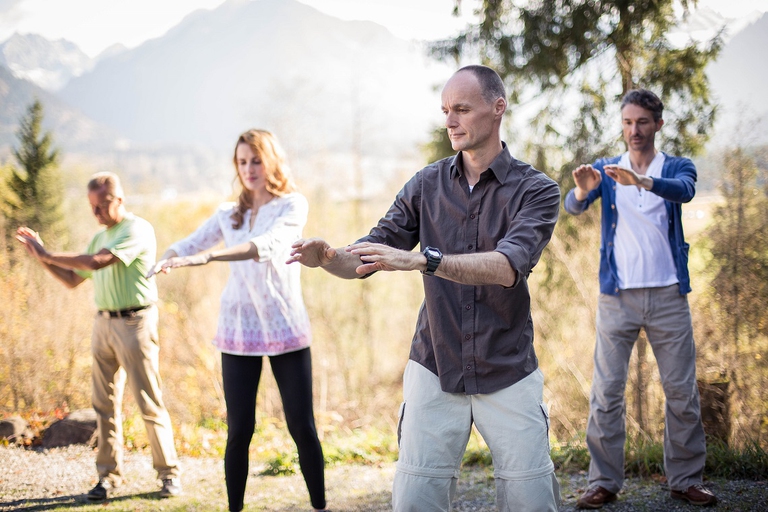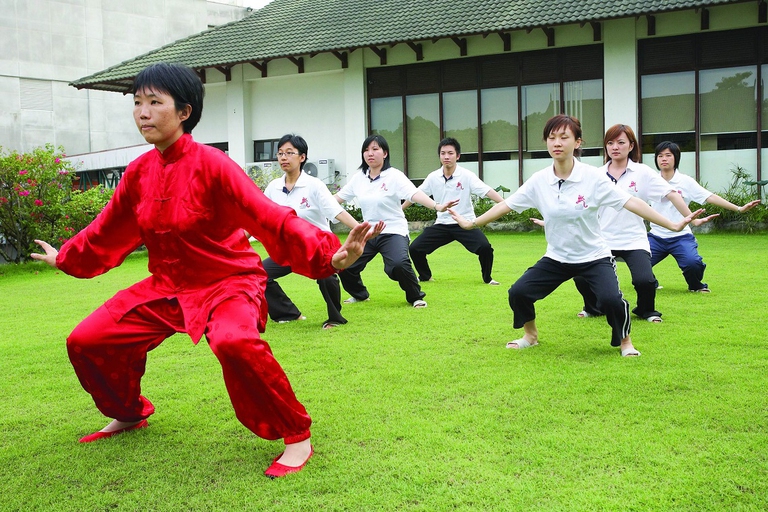
Democracy places a key role in putting the Covid-19 crisis behind us. An interview with Walden Bello, who has dedicated his life to defending human rights.
Characterised by lithe movements and deep breaths Qigong is an ideal practice to promote psycho-physical wellness.
A discipline used by the Chinese since ancient times, Qigong can be defined as a form of moving meditation that allows those who practice it to balance the flow of energy throughout their body. It is the basis for martial arts. Among the most important texts that have contributed to its spread in the West we mention the I Ching, the Book of Changes dealing with the cycles of nature and natural energy. Loosely translated into English, the term Qigong means “the cultivation and conservation of vital energy” or, simply, “work with Qi”.
This ancient tradition evolved into different trends: Buddhist, Confucian and Taoist. Its main characteristics are four: conscious breaths, slow and gentle movements, mental concentration, meditation. When practicing Qigong the most important thing is to achieve balance and be aware of the centre of your body to harmonize the flow of Qi. When this condition is achieved the energy levels can flow freely and you feel well from a physical, emotional and mental point of view. Balance and stability require actions and a lifestyle in harmony with nature cycles and elements.
To create inner and outer harmony it is important to protect and nourish three areas of the body – the head, middle and lower abdomen – where the essential qualities called the “three treasures”, or Shen, Qi and Jing are stored: these are forms of energy that connect to the body, breath and mind. Jing and Shen are also defined as yin and yang (a concept used in Taoism) of Qi. So, the most important parts of the body according to Qigong are: the top of the head, eyebrows, tongue, heart, navel, kidneys, perineum, palms of the hands and soles of the feet. Another central element in Qigong is controlling inhalation and exhalation, a self-discipline that increases the strength and concentration, as well as the mental and emotional stability. The exercises help being more aware of thoughts and breaths: this creates harmony between the human being and nature. To achieve harmony between the individual’s energy and that of the macrocosm it is essential to adopt a lifestyle with special rules, including: follow a healthy diet and avoid prolonged periods of stress.
One of the most effective and simple practices of Qigong is loosening the muscles around the neck to get rid of stiffness and relieve stress, especially in case you work all day with a computer. To do this exercise you should lie on a soft mat, relax with a few breaths and then stretch out the legs and arms. Close your eyes and lay your hands on the navel, paying attention to the solar plexus. When you feel relaxed, interlace your fingers in front of the groin, raise your arms and place them on the neck. Exhale and repeat the exercise at least three times.
Qigong includes walking exercises (for example, you walk while you roll your shoulders or while you raise your hands), sitting exercises ideal for keeping calm and concentration, and exercises while lying flat on your back. The best time to practice qigong is early morning, possibly at sunrise, when nature and humans awakens and you can create a connection between them more easily. An ancient maxim of Qigong says: “While resting be like a sequoia. While moving be as water and clouds. When the Qi circulates freely and lushly, in the snow flowers bloom”.
Siamo anche su WhatsApp. Segui il canale ufficiale LifeGate per restare aggiornata, aggiornato sulle ultime notizie e sulle nostre attività.
![]()
Quest'opera è distribuita con Licenza Creative Commons Attribuzione - Non commerciale - Non opere derivate 4.0 Internazionale.
Democracy places a key role in putting the Covid-19 crisis behind us. An interview with Walden Bello, who has dedicated his life to defending human rights.
China has removed pangolin scales from the list of approved ingredients for use in traditional Chinese medicine.
The consequences of the novel coronavirus or Covid-19: what are the symptoms, what the death toll is, whether there’re a cure, how China has been affected. And why it’s been labelled an emergency also in economic terms.
The first NGO that puts an intelligence network at the service of the planet. People who work in the shadows to eradicate poaching and save elephants along with other endangered species. This is the Elephant Action League, and we spoke to its founder Andrea Crosta.
These are the top news stories of 2017 and the people who have most left a mark on a year that has been intense yet also rewarding from the point of view of social and environmental sustainability.
Lab meat, also known as cultured or bio meat, is grown in a laboratory using animal cells entirely outside of an animal’s body. China has signed a 300 million dollar deal to partner with Israeli high-tech companies like SuperMeat, Future Meat Technologies and Meat the Future, which are three of only eight companies in the world growing
Un panda gigante è la forma del nuovo impianto fotovoltaico costruito in Cina ed entrato in funzione in questi giorni. Una centrale bella da vedere ma che vuole soprattutto parlare di sostenibilità ai giovani.
Many consumer products such as textiles and leather products, firefighting foams, cleaning products and pesticides contain PFASs (per- and polyfluoroalkyl substances), known in the United States as perfluorooctane sulfonate (PFOS) and perfluorooctanoic acid (PFOA). Cookware, carpets, fabrics for furniture and even paper packaging for food also contain these chemicals. Used in manufacturing due to useful
L’obiettivo della ricorrenza è diffondere la consapevolezza sui rischi che corre il pangolino e far conoscere questo buffo animale al grande pubblico.









